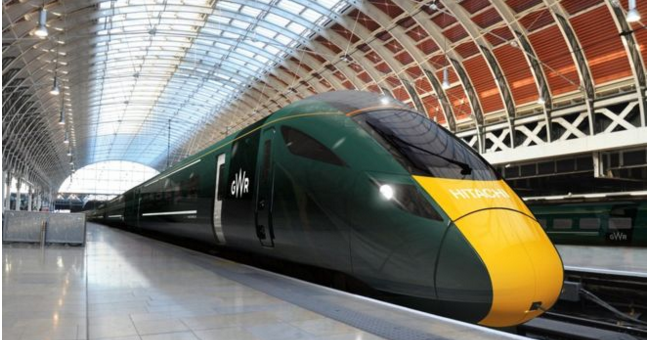Chris Grayling grilled over rail electrification programme as delays lead to soaring costs
Transport Secretary admits rail electrification is 'over budget and late'; his alternative will cost £63,000 per day on one line alone

Your support helps us to tell the story
From reproductive rights to climate change to Big Tech, The Independent is on the ground when the story is developing. Whether it's investigating the financials of Elon Musk's pro-Trump PAC or producing our latest documentary, 'The A Word', which shines a light on the American women fighting for reproductive rights, we know how important it is to parse out the facts from the messaging.
At such a critical moment in US history, we need reporters on the ground. Your donation allows us to keep sending journalists to speak to both sides of the story.
The Independent is trusted by Americans across the entire political spectrum. And unlike many other quality news outlets, we choose not to lock Americans out of our reporting and analysis with paywalls. We believe quality journalism should be available to everyone, paid for by those who can afford it.
Your support makes all the difference.An hour into his long and uncomfortable journey, Chris Grayling said plaintively: “By now we were meant to be most of the way to Cardiff, and we’re not.”
The beleaguered Transport Secretary was talking about the lamentable delays and cost overruns for electrification of the Great Western Railway. But the 4.45pm Transport Select Committee was not, from Mr Grayling's point of view, making great progress either.
The Transport Secretary had been summoned to explain himself about a sudden change of track on electrification.
“There are a lot of communities right around the country that feel very aggrieved by the decision you have taken,” said Labour’s Luke Pollard. “They feel very betrayed and let down.”
Passengers from Leicester, Derby, Nottingham and all stations to Sheffield want to know why plans for electrification from London St Pancras to Sheffield had been abandoned less than halfway, at Kettering. (As Mr Grayling’s misfortune would have it, the committee is chaired by Labour’s Lilian Greenwood, whose Nottingham South constituents were rather looking forward to faster, cleaner trains to London.)
Travellers west of Cardiff, too, were keen to hear why the wires from London Paddington will stop at the Welsh capital rather than continuing to Swansea as originally planned.
The Transport Secretary said: “We tried to do too much electrification in one go.” He has decided to save money and trouble by the use of “bi-mode” – a mirror image of the Toyota Prius principle. Perfectly good electric trains are fitted with diesel motors and filled with fuel. This cargo is then carted around the country at 125mph, coming into its own only when the overhead wires run out.
“The worst of every world,” Labour’s Daniel Zeichner called the concept.
“Bi-mode” trains are heavier, which hampers performance and increases damage to the tracks. Maintenance is twice as expensive. The operational cost to the traveller and the taxpayer is alarming: on the Midland main line alone between London and Sheffield, the extra expense is £63,000 a day.

But Mr Grayling was unrepentant: “My job is to try to maximise the value to passengers of the investments that we make. And spending a billion pounds shaving a minute off the journey time to Sheffield at a time when there are capacity constraints elsewhere on the network still to be tackled, didn’t seem to be the best use of money.”
“I’ve not taken away any passenger benefits anywhere. These changes do not affect the passenger.”
They do, though, affect the environment. At a time when the Government is urging motorists to switch from diesel to electric cars, on the rails it is heading in the opposite direction.
As the 4.45pm from Paddington to Cardiff was approaching the Severn Tunnel, Ms Greenwood wondered why, if bi-mode was such as great idea, the underwater link between England and Wales had been closed for six weeks in 2016 for electrification.
Previous decisions had been flawed. The whole project, said Mr Grayling, was “over budget and late”.
But he hinted that long closures could affect passengers across the Pennines as the east-west route was improved: “If we could set up a plan to close that route for a month one summer and divert those trains elsewhere, we could do a whole lot of extra work.”
Something untoward in the Severn Tunnel disrupted the 4.45pm departure from Paddington. As a result, the 4.45pm Transport Select Committee hit the buffers a few minutes before the train reached Cardiff.
“Thank you, Secretary of State, for your time today,” said the committee chair.
“You’re welcome,” said Mr Grayling, with the weary look of a commuter at the end of an unexpectedly protracted two-hour journey, and who knew he would have to travel this way again.
Join our commenting forum
Join thought-provoking conversations, follow other Independent readers and see their replies
0Comments